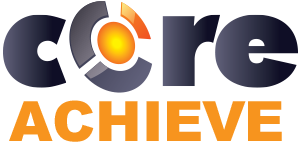Building a Robust Sales Pipeline with Training
December, 21 2023
Other posts:
Enhancing Team Dynamics for Effective Group Decision-Making with LMS Integration
Organizations increasingly rely on collaborative efforts to solve complex problems, innovate, and adapt to change, but how do we ensure that collaboration is happening.
Maximizing Small Business Potential with Training Technology
Training technologies can push small businesses ahead of their competitors, but what are the factors that go into choosing the right technology?
Unlocking Employee Potential: The Transformative Benefits of an Interactive Learning Management System (LMS)
Interactive training allows for unlocking employee potential, but how is it done?
Strategies for Adapting In-Person Training to Online Platforms
Online training is one of the most flexible ways of delivering training across organizations, but how do you even begin to adapt in-person training into online?
Giving Back to Employees: Strategies for Impactful, Organizational Gifts
Gifts don't have to be purely material, organizations can give back to their people by implementing some structural changes.
Every organization wants a streamlined sales pipeline, but building one requires a series of interlocking activities with one of the most important being training.
In the dynamic landscape of sales, having a robust pipeline is essential for sustainable business growth. A well-structured and proactive approach to training can significantly contribute to building and maintaining a strong sales pipeline. Let's delve into how organizations can leverage training initiatives to empower their sales teams and enhance the overall health of their sales pipelines.
1. Investing in Product Knowledge Training: A sales team armed with in-depth product knowledge is a formidable force. Implement training programs that provide comprehensive insights into the products or services offered. This knowledge equips sales professionals to articulate value propositions effectively, addressing client needs with confidence and authority.
2. Enhancing Sales Skills Through Training: Effective selling requires a blend of skills, from communication and negotiation to relationship-building. Training programs should focus on refining these skills, incorporating modules on active listening, objection handling, and strategic selling techniques. By honing these abilities, sales teams become adept at navigating the complexities of the sales process.
3. Introducing Sales Technology Training: The modern sales landscape is heavily influenced by technology. Equip your sales team with the necessary skills to leverage sales tools, customer relationship management (CRM) systems, and data analytics. Training in these areas ensures that your team maximizes the potential of available technologies, streamlining processes and optimizing the sales pipeline.
4. Creating a Consistent Sales Process: Training plays a pivotal role in establishing and reinforcing a standardized sales process. Define the key stages of your sales cycle and ensure that each team member is well-versed in the steps involved. Consistency in approach enhances predictability, allowing for better forecasting and strategic decision-making.
5. Incorporating Continuous Learning: The sales landscape is ever evolving, and continuous learning is crucial for staying ahead. Implement ongoing training programs that keep your sales team abreast of industry trends, market dynamics, and changes in consumer behavior. A learning culture fosters adaptability, enabling your team to proactively adjust strategies to meet evolving market demands.
6. Nurturing a Customer-Centric Mindset: Training programs should emphasize the importance of a customer-centric approach. Equip your sales team with the skills to understand client needs, anticipate challenges, and tailor solutions accordingly. A customer-focused mindset not only builds stronger relationships but also contributes to repeat business and referrals.
7. Aligning Sales and Marketing Through Training: Collaboration between sales and marketing is integral to pipeline success. Implement training sessions that align both teams, ensuring a shared understanding of target audiences, messaging, and goals. This synergy between departments streamlines lead generation, qualification, and conversion processes.
8. Implementing Role-Specific Training: Recognize that different roles within the sales team require tailored training. While frontline sellers benefit from client-facing skills, sales managers may need training in leadership, coaching, and performance analysis. Customized training ensures that each team member is equipped with the skills necessary for their specific role.
9. Monitoring and Evaluating Performance: Training effectiveness should be continuously monitored and evaluated. Implement key performance indicators (KPIs) to assess the impact of training on the sales pipeline. Regular evaluations allow for adjustments, ensuring that training initiatives remain aligned with organizational objectives.
10. Fostering a Culture of Collaboration: A collaborative environment enhances the effectiveness of sales training. Encourage knowledge sharing, peer mentoring, and collaborative problem-solving. A culture of collaboration not only strengthens individual capabilities but also contributes to the collective success of the sales team.
Building a robust sales pipeline is a multifaceted endeavor that hinges on strategic and targeted training initiatives. By investing in product knowledge, enhancing sales skills, embracing technology, and fostering a continuous learning culture, organizations can empower their sales teams to navigate the complexities of the sales landscape successfully. Well-trained sales force not only fills the pipeline but also nurtures relationships, drives revenue, and positions the organization for sustained growth in a competitive market.
Get started with CoreAchieve today for free.
Photo by Markus Winkler on Unsplash

Leave comment: